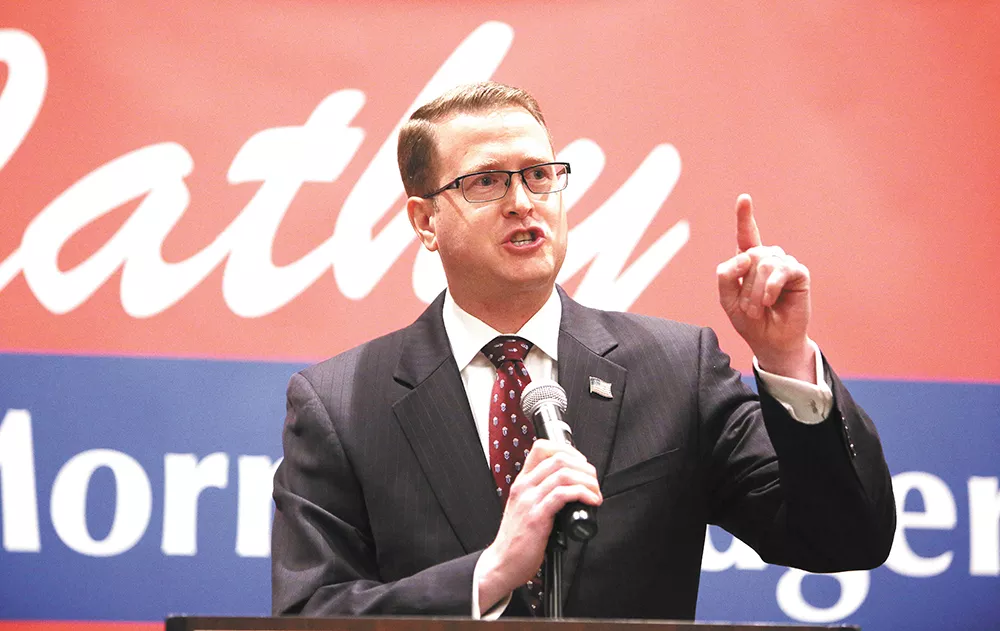On the fourth day of the legislative session this year, state Rep. Matt Shea, R-Spokane Valley, took to the Capitol steps, flanked by gun activists openly wielding rifles and sidearms, and urged civil disobedience against laws intended to keep dangerous weapons away from dangerous people.
"An unconstitutional law is no law at all," he said. "We will not comply."
Since the November election, Initiative 594, the statewide ballot measure creating universal background checks on gun sales in Washington, has continued to face stiff resistance in Olympia and federal court despite nearly 60 percent voter approval.
At the end of the December, the Second Amendment Foundation — the sister organization of the Bellevue-based gun-rights lobbying group that spearheaded the failed campaign for a ballot measure aimed at preventing Washington from enacting additional background checks — filed a federal lawsuit challenging I-594. The suit claims that the transfer provisions under the new background check law are so vague they "make it impossible for a person of ordinary intelligence to ensure that their conduct is lawful."
"The core problems in 594 is it really goes after activities that are constitutional rights," says Phil Watson, director of special projects at the Second Amendment Foundation. "Let's say you want to take my car to the corner store to buy a thing of a milk. You couldn't do that if the rules of 594 applied to cars. ... You couldn't even relax in the passenger seats."
The suit was filed by several plaintiffs, including firearms organizations and six individuals, against Attorney General Bob Ferguson and Washington State Patrol Chief John Batiste. The plaintiffs contend they "fear arrest, prosecution, fine, and imprisonment" for breaking I-594's transfer rules. According to the suit, Darryl Lee and Xee Del Real, a cohabitating couple in Lake Stevens, for example, share a firearm but cannot determine whether they're legally allowed to share it. I-594 exempts transfers as gifts between immediate family members or temporarily between spouses or domestic partners.
The new law, which went into effect in December, expands criminal background checks for all gun sales in Washington, including those between private individuals, at gun shows and on online marketplaces like Armslist. The initiative also requires background checks for most transfers, like loans and gifts between family members — a fact the gun lobby actively campaigned against in the past election cycle.
Meanwhile in the legislature, Republican lawmakers have introduced a series of bills to amend I-594 by granting background check exemptions on gun transfers to law enforcement and corrections officers, licensed security guards and military personnel. Shea is sponsoring a half-page bill to flat-out repeal I-594.
"The voters have been extremely clear that they want the background check loophole closed. That's why they did it," says Geoff Potter, communications director for the Washington Alliance for Gun Responsibility. "We are concerned that legislative energy that could be focused on coming together around good policy is being spent on an issue that has been decided."
These proposals face a significant challenge passing the legislature. Any bill amending a voter-approved ballot initiative in the first two years requires a two-thirds vote in both chambers. Shea's bill is unlikely to even receive a hearing from the Democratic-controlled judiciary committee. For gun-rights activists, a federal lawsuit is currently their best bet to limit I-594, says Watson.
"Quite honestly, I think we got traditions on our side. We've got the truth on our side and I think most of the American public is on our side," he says. "Even in Washington state." ♦

